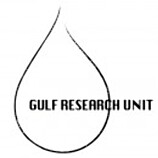
Archive: Gulf Research Blog
Blog articles from 2009 to 2012. The Gulf Research Unit is research programme based at the University of Oslo.
Development and censorship
Denne artikkelen er over ti år gammel og kan inneholde utdatert informasjon.
By: Jon Nordenson
A quick look on Kuwaiti politics since the last elections suggests a positive development; laws have been passed, and no government has resigned. But then a show on a private TV-station set the scene for an attack on the country’s freedom of expression.
Kuwait’s elections last May were the third elections in three years. Moreover, those previous three years had witnessed no less than seven governments. Paralyzed by a power struggle with the parliament, the government did not manage to deal with pressing issues, and few laws were passed in parliament. As I have written earlier, many ordinary Kuwaitis were fed up with this deadlock, and voted for change in the last elections. And indeed, this parliament – and government – seems to be different from their predecessors.
For one thing, there’s the interpellations. Previously, when Kuwaiti MPs have moved to question ministers (often referred to as “grilling” in Kuwaiti English newspapers), in particular ministers from the ruling Al-Sabah family, this often led to crisis. But this time, ministers – including the PM himself - have faced questioning in parliament, and even votes of no-confidence submitted by MPs following some of the interpellations. With even the PM facing the parliament in this way, an important taboo has been broken in Kuwaiti politics, and the parliament has proved their ability to fill their supervisory function.
Moreover, the parliament and the government have taken on difficult political issues, and laws have been passed. For instance, on the 30th of January, the new labor law was sent to the government for ratification. The law, which includes many improvements for laborers in Kuwait’s private sector, has already been passed in parliament, and will soon go into effect.
The parliament also passed the so called “debt relief law”, intended to help Kuwaiti citizens manage their private debts. According to Kuwait Times, the law requires the state to buy approximately $ 16 billion (!) worth of private debts, spend $ 6 billion to pay off interests, and reschedule the payments so that no citizen must pay more than 35% of their monthly income in their monthly payments. One may of course discuss how wise it would be to spend such enormous amounts in such a way, and many have criticized the law. The critics include the cabinet, which refuses to accept it. But populism is undeniably a part of politics, and it shows a parliament determined to make political decisions.
In addition, the cabinet and the parliament is currently debating a five year development plan, the privatization of Kuwait Airways, and a new bill concerning the rights of disabled people. As for difficult matters, the parliament held a special session on the issue of the Beedons – stateless inhabitants of Kuwait – and their social and political rights. The question of the Beedons has for a long time been a difficult matter for Kuwaiti authorities, and a source for much international criticism.
In all, since the last elections, the cabinet and the parliament has managed to break the deadlock, pass bills, face pressing issues, and for the government; face questioning in parliament as well. Though one should be careful to deem something “good” or “bad” politics, it does seem that Kuwaiti politics has entered a more constructive path since the last elections, with focus on politics rather than on crisis.
But then came the comments of Mohammed al-Juwaihel on his own private TV-station, al-Sur (“The Wall”). Just before Christmas, al-Juwaihel said on air that Bedouins are not really Kuwaitis, and that only city-dwellers are real citizens of the country. Naturally, this sparked an outrage from tribal MPs and others, demanding action from the government. Al-Juwaihel was arrested, and now amendments to the media laws are discussed, which critics say will limit the freedom of expression in Kuwait. According to Reporters Sans Frontiers, the new amendments stipulate harsh penalties for anyone insulting members of the royal family, who makes blasphemous statements, or who incite sectarianism in the country. In addition, censorship will be imposed on Kuwait’s active blogosphere. Although the comments made by al-Juwaihel was what sparked these amendments, critics claim the government have been planning them for a long time, waiting for the right time to launch them.
The question then, is, where are Kuwaiti politics going? On the one hand, the cabinet and the parliament seem more able to create development and make political decisions, on the other, they seem less concerned about the basic democratic right of freedom of expression. It may be tempting to point to Dubai, where democratic rights are sacrificed in favor of rapid, economic development. And indeed, some of the points in the governments five year development plan does lead one’s thoughts to Dubai, such as the construction of the “world’s largest tower”. However, Kuwait and Dubai are two very different places; Kuwaitis are proud of their democratic project, and the government will probably face many difficulties if it should try to implement the above mentioned amendments. Still, these last few weeks have highlighted what might be a difficult question in Kuwait in the years to come; development vs. democracy.






